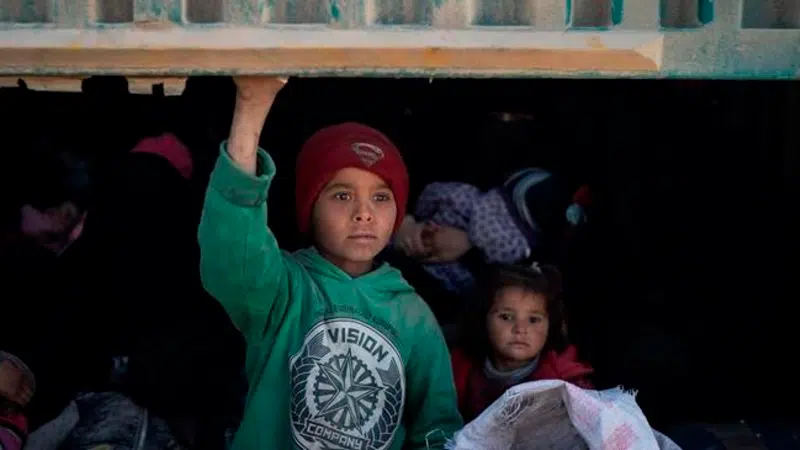
More than 150 IS militants handed over to Iraq from Syria
OUTSIDE BAGHOUZ, Syria — U.S.-backed Syrian forces fighting the Islamic State group handed over more than 150 Iraqi members of the group to Iraq, an Iraqi security official said Thursday, marking the biggest repatriation from Syria of captured militants so far.
The official said the IS militants were handed over to the Iraqi side late Wednesday, and that they were now in a “safe place” under investigation.
The transfer comes as the U.S.-backed Syrian Democratic Forces is involved in a standoff over the final sliver of land held by IS in eastern Syria, close to the Iraqi border.


